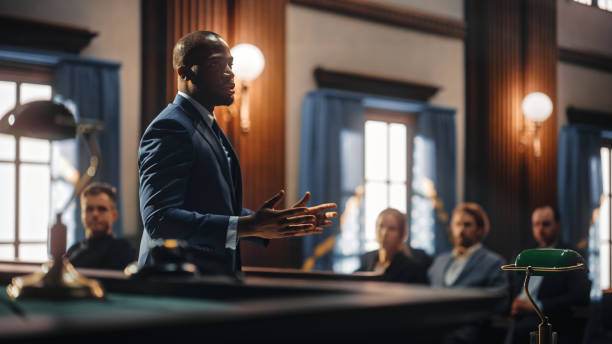When life throws unexpected challenges your way, particularly in the form of accidents and injuries, the last thing you want is to navigate the legal landscape alone. A shreveport personal injury lawyer can be your strongest ally in seeking justice and compensation for your losses. Whether you’ve suffered from a car accident, a slip and fall, or workplace injuries, having a skilled attorney at your side not only eases your burden but also enhances your chance of achieving a favorable outcome. In this detailed guide, we will explore everything you need to know about hiring a personal injury lawyer in Shreveport, their role, and how they can help you reclaim your life after an injury.
Understanding Personal Injury Law
Personal injury law is a vast field that encompasses various types of cases where individuals suffer harm due to another party’s negligence or wrongful act. The purpose of personal injury law is to provide compensation to the injured party for their medical expenses, loss of income, emotional distress, and other related costs. Here are some key areas of personal injury law:
- Car Accidents: One of the most common types of personal injury cases, which involve victims seeking compensation for injuries sustained in a vehicle collision.
- Slip and Fall: These cases arise when an individual is injured due to unsafe conditions on someone else’s property.
- Medical Malpractice: Occurs when a healthcare professional fails to provide the standard of care, resulting in harm to the patient.
- Workplace Injuries: Workers may seek compensation for injuries sustained during work-related activities or due to unsafe work environments.
- Product Liability: Manufacturers can be held accountable for injuries caused by defective products.
Why You Need a Shreveport Personal Injury Lawyer
Understanding your rights and responsibilities is crucial after experiencing an injury. The complexities of the legal system can be overwhelming, but a shreveport personal injury lawyer brings expertise that is invaluable. Here are some reasons to consider hiring one:
- Legal Knowledge: Personal injury lawyers understand the intricacies of the law and can navigate your case efficiently.
- Negotiation Skills: Lawyers are skilled negotiators who can deal with insurance companies on your behalf, ensuring you receive a fair settlement.
- Case Preparation: A personal injury attorney will gather evidence, compile medical records, and build a compelling case to present in court if needed.
- Contingency Fees: Many personal injury lawyers work on a contingency basis, meaning they only get paid if you win your case, making legal support more accessible.
- Emotional Support: An attorney can ease the stress of legal proceedings, allowing you to focus on recovery.
Choosing the Right Shreveport Personal Injury Lawyer
Not all personal injury lawyers are created equal. To ensure you select the right one for your needs, consider the following factors:
Experience and Expertise
Look for a lawyer with extensive experience in personal injury law, especially in handling cases similar to yours. Specialized knowledge can make a significant difference in the outcome of your case.
Reputation
Research prospective lawyers by reading reviews, checking their ratings, and seeking recommendations from friends or family. A lawyer with a strong reputation in the community is often a reliable choice.
Initial Consultation
Most personal injury lawyers offer a free initial consultation. Use this meeting to assess their communication style, and willingness to listen, and how they plan to approach your case.
Fees and Costs
Discussing fees upfront is critical; ensure you understand how the lawyer’s charges work, including the contingency fee structure.
Availability
Your lawyer should be accessible and responsive. Poor communication can lead to frustration and could impact your case significantly.
The Personal Injury Claims Process
Once you’ve selected a shreveport personal injury lawyer, it’s essential to understand the personal injury claims process:
1. Consultation
Your lawyer will schedule a consultation to discuss the details of your case, gather information, and evaluate the potential for a successful claim.
2. Investigation
The lawyer will conduct a thorough investigation, documenting evidence like police reports, medical records, and witness statements to build a strong case.
3. Demand Letter
Your lawyer will craft a demand letter to the responsible party’s insurance company outlining the damages and compensation sought.
4. Negotiation
Negotiations will commence, and your lawyer will advocate on your behalf to secure a fair settlement. This phase may require back-and-forth discussions until an agreement is reached.
5. Filing a Lawsuit
If negotiations are unsuccessful, your lawyer may advise you to file a lawsuit. This step initiates the formal process of litigation.
6. Discovery
Both parties will exchange information and evidence during the discovery phase, which is crucial for building your case.
7. Trial
If a settlement cannot be reached, your case will go to trial. Your lawyer will present your case in front of a judge or jury, seeking a favorable verdict.
8. Settlement or Verdict
Following the trial, the judge or jury will deliver a verdict. If successful, you will receive compensation as determined by the court or negotiated settlement.
Common Misconceptions About Personal Injury Lawyers
There are many myths surrounding personal injury lawyers that may deter individuals from seeking help. Some of the common misconceptions include:
- All Lawyers Are Similar: Personal injury law is a unique field, and not all attorneys have specialized expertise in this area.
- It’s Too Expensive: Many personal injury attorneys work on a contingency basis, making it financially feasible for clients to pursue their claims.
- I Can Handle It Alone: While you can represent yourself, navigating the legal system without experience significantly decreases your chances of success.
- Large Settlements Take Long Time: Many personal injury cases settle quickly, benefiting all parties involved.
- Only Serious Injuries Qualify: Even minor injuries may have a claim if negligence can be proven.
Conclusion: A Step Toward Recovery
Hiring a shreveport personal injury lawyer is a crucial step toward obtaining justice and recovery after an accident. They provide invaluable support, advocate for your rights, and ensure that your case is handled with the utmost professionalism. While the journey may seem daunting, with the right attorney by your side, you can navigate the complexities of personal injury law with confidence, allowing you to focus on what truly matters — your health and well-being.
FAQ
What should I do immediately after an injury?
Seek medical attention, document the scene, take photographs, and collect witness contact information. It’s also advisable to consult a personal injury lawyer as soon as possible.
How long do I have to file a personal injury claim in Louisiana?
In Louisiana, you generally have one year from the date of the injury to file a personal injury claim. It’s crucial to act promptly to ensure that you meet this deadline.
What types of damages can I recover in a personal injury case?
You may be entitled to recover medical expenses, lost wages, pain and suffering, emotional distress, and, in some cases, punitive damages.
Will my case go to trial?
Not all personal injury cases go to trial. Many cases are settled through negotiation before reaching the court. However, if a fair settlement cannot be reached, your case may proceed to trial.
What if I was partially at fault for my injury?
Louisiana follows a comparative fault rule, meaning you can still recover damages even if partially at fault, but your compensation may be reduced by your percentage of fault.




